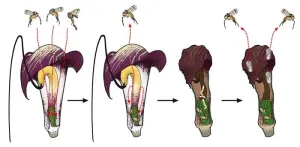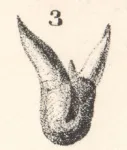(Press-News.org) By analyzing millions of small genetic differences across a person’s genome, researchers can calculate a polygenic risk score to estimate someone’s lifetime odds of developing a certain disease. Over the past decade, scientists have developed these risk scores for dozens of diseases, including heart disease, kidney disease, diabetes, and cancer, with the hope that patients could one day use this information to lower any heightened risk of disease. But determining whether such tests work effectively across all populations, and how they can guide clinical decision-making, has been a challenge.
Now, a team of researchers at the Broad Institute of MIT and Harvard, in collaboration with 10 academic medical centers across the US, has implemented 10 such tests for use in clinical research. In a study published in Nature Medicine, the team outlined how they selected, optimized, and validated the tests for 10 common diseases, including heart disease, breast cancer, and type 2 diabetes. They also calibrated the tests for use in people with non-European ancestries.
The scientists worked in collaboration with the national Electronic Medical Records and Genomics (eMERGE) network, which is funded by the National Human Genome Research Institute to study how patients’ genetic data can be integrated with their electronic medical records to improve clinical care and health outcomes. The 10 collaborating medical centers are part of the project and enrolling 25,000 participants for it, while researchers at Broad Clinical Labs, a subsidiary of the Broad Institute, carry out the polygenic risk score testing for those participants.
“There have been a lot of ongoing conversations and debates about polygenic risk scores and their utility and applicability in the clinical setting,” said Niall Lennon, chief scientific officer of Broad Clinical Labs, an institute scientist at Broad, and first author of the new paper. “With this work, we’ve taken the first steps toward showing the potential strength and power of these scores across a diverse population. We hope in the future this kind of information can be used in preventive medicine to help people take actions that lower their risk of disease.”
What’s the score?
Most polygenic risk scores have been developed based on genetic data largely from people of European ancestry, raising questions about whether the scores are applicable to people of other ancestries.
To optimize polygenic risk scores for a diversity of people, Lennon and his colleagues first combed the literature looking for polygenic risk scores that had been tested in people from at least two different genetic ancestries. They also searched for scores that indicate a disease risk that patients could reduce with medical treatments, screening, and/or lifestyle changes.
“It was important that we weren’t giving people results that they couldn’t do anything about,” said Lennon.
The team selected 10 conditions to focus on for polygenic risk scores: atrial fibrillation, breast cancer, chronic kidney disease, coronary heart disease, hypercholesterolemia, prostate cancer, asthma, type 1 diabetes, obesity, and type 2 diabetes.
For each condition, the researchers identified the exact spots in the genome that they would analyze to calculate the risk score. They verified that all those spots could be accurately genotyped, by comparing the results of their tests with whole genome sequences from each patient’s blood sample.
Finally, the researchers wanted to make polygenic risk scores work across different genetic ancestries. They studied how genetic variants differ across populations by analyzing data from the National Institutes of Health’s All of Us research program, which is collecting health information from one million people from diverse backgrounds across the U.S. The team used that information to create a model to calibrate a person’s polygenic risk score according to that individual’s genetic ancestry.
“We can’t fix all biases in the risk scores, but we can make sure that if a person is in a high-risk group for a disease, they’ll get identified as high risk regardless of what their genetic ancestry is,” explained Lennon.
With that optimization complete, Lennon’s team at Broad Clinical Labs ended up with 10 tests that they are now using to calculate risk scores for the 25,000 people enrolled in the eMERGE study. With their eMERGE collaborators, they are also planning detailed follow-up studies to analyze how polygenic risk scores might influence patients’ health care.
“Ultimately, the network wants to know what it means for a person to receive information that says they’re at high risk for one of these diseases,” Lennon said.
Funding:
This phase of the eMERGE Network was initiated and funded by the National Human Genome Research Institute.
Paper(s) cited:
Lennon, NJ. et al. Selection, optimization, and validation of ten chronic disease polygenic risk scores for clinical implementation in diverse populations. Nature Medicine. Online February 19, 2024. DOI: 10.1038/s41591-024-02796-z
About Broad Institute of MIT and Harvard
Broad Institute of MIT and Harvard was launched in 2004 to empower this generation of creative scientists to transform medicine. The Broad Institute seeks to describe the molecular components of life and their connections; discover the molecular basis of major human diseases; develop effective new approaches to diagnostics and therapeutics; and disseminate discoveries, tools, methods and data openly to the entire scientific community.
Founded by MIT, Harvard, Harvard-affiliated hospitals, and the visionary Los Angeles philanthropists Eli and Edythe L. Broad, the Broad Institute includes faculty, professional staff and students from throughout the MIT and Harvard biomedical research communities and beyond, with collaborations spanning over a hundred private and public institutions in more than 40 countries worldwide.
END
Genetic risk prediction for 10 chronic diseases moves closer to the clinic
As part of a nationwide collaboration, Broad Clinical Labs researchers have optimized 10 polygenic scores for use in clinical research as part of a study on how to implement genetic risk prediction for patients.
2024-02-19
ELSE PRESS RELEASES FROM THIS DATE:
Newly discovered genetic markers help pinpoint diabetes risks, complications
2024-02-19
In the largest genome-wide association study to date on Type 2 diabetes, a team of international researchers, co-led by a University of Massachusetts Amherst genetic epidemiologist, has located 1,289 genetic markers associated with Type 2 diabetes (145 of which are newly identified) and generated risk scores for diabetes complications.
In research published Monday, Feb. 19 in the journal Nature that advances understanding into the inheritability of Type 2 diabetes, the scientists used cutting-edge ...
One step forward, no steps back: new study advances understanding of dopamine’s role in movement
2024-02-19
Dopamine, a chemical messenger in the brain, is mostly known for its role in how we experience pleasure and reward. However, new research from the Champalimaud Foundation (CF) shifts the spotlight towards dopamine’s critical involvement in movement, with implications for our understanding and treatment of symptoms in Parkinson’s Disease (PD).
Imagine the act of walking. It’s something most able-bodied people do without a second thought. Yet it is actually a complex process involving various ...
Pollinator's death trap turns into nursery
2024-02-19
In a group of plants that is famous for luring its pollinators into a death trap, one species offers its flowers as a nursery in exchange. The Kobe University discovery blurs the line between mutualism and parasitism and sheds light on the evolution of complex plant-insect interactions.
Many plants rely on animals for pollination and most offer rewards for the service. Some plants, however, deceive their pollinators, and a famous example is the genus Arisaema. “It is famous as the only plant that achieves pollination at the expense of the pollinator's life,” says Kobe University biologist SUETSUGU Kenji, who is an expert on plant pollination ecology. The plant uses ...
Studies find flu vaccines were effective in 2022-2023 flu season
2024-02-19
The prospect of the worrisome triple threat of COVID, RSV and flu was assuaged last year by the effectiveness of flu vaccines. Two recent studies from the Centers for Disease Control and Prevention’s VISION Network have found that flu vaccines were effective for all ages against both moderate and severe flu in the U.S. during the 2022-2023 flu season.
Both the pediatric and adult VISION Network studies analyzed flu-associated emergency department (E.D.)/urgent care visits (indicative of moderate disease) and hospitalization (indicative of severe disease) from October 2022 through March 2023, a flu season in which far fewer individuals were social distancing or ...
Second year of Cal Poly astronomy fellowship to examine high-energy particle jets near supermassive black holes
2024-02-19
February 16, 2024
Contact: Nick Wilson
805-235-8008; nwilso28@calpoly.edu
Second Year of Cal Poly Astronomy Fellowship to Examine High-Energy Particle Jets Near Supermassive Black Holes
SAN LUIS OBISPO — In the second year of the Astronomy Faculty Research Fellowship in Cal Poly’s Bailey College of Science and Mathematics, a research team will study extremely high-energy photons emitted by the extreme environment found near mega-sized black holes.
The fellowship was ...
To boost a preschooler’s language skills, consider reminiscing
2024-02-19
Language skills are strong predictors of academic, socioemotional and behavioral outcomes when children enter school. They learn language in preschool years by interacting with others, especially their parents. Book sharing is a popular way parents engage young children in conversation. However, not all parents are comfortable with book sharing and not all children like having books read to them.
A new study on “parent talk” by Florida Atlantic University, in collaboration with Aarhus University in Denmark, provides ...
Husker team wins prize in contest to treat disease through gene editing
2024-02-19
Lincoln, Nebraska, Feb. 19, 2024 — A Husker research duo was named a first-round winner in a National Institutes of Health competition aimed at generating solutions for delivering genome-editing technology to the cells of people with rare and common diseases.
Janos Zempleni, Willa Cather Professor of molecular nutrition, and Jiantao Guo, professor of chemistry, were selected as Phase 1 winners in the NIH’s Targeted Genome Editor Delivery Challenge. The challenge is a three-phase competition with prizes totaling $6 million; the University of Nebraska–Lincoln team was among 30 initial recipients announced in December ...
Why two prehistoric sharks found in Ohio got new names
2024-02-19
COLUMBUS, Ohio – Until recently, Orthacanthus gracilis could have been considered the “John Smith” of prehistoric shark names, given how common it was.
Three different species of sharks from the late Paleozoic Era – about 310 million years ago – were mistakenly given that same name, causing lots of grief to paleontologists who studied and wrote about the sharks through the years and had trouble keeping them apart.
But now Loren Babcock, a professor of earth sciences at The Ohio State University, has finished the arduous task of renaming two of the three sharks – and in the process rediscovered a wealth ...
Study reveals five common ways in which the health of homeless pet owners and their companions is improved
2024-02-19
A rapid scoping review has been conducted which reveals five common ways in which the health of homeless pet owners and their companion animals is improved.
Ten percent of homeless people keep pets. But little information exists on specific intervention strategies for improving the health of homeless people and their pets who are often the only source of unconditional love or companionship in their life.
The study, published in the Human-Animal Interactions journal, found that the most common ways ...
Potassium depletion in soil threatens global crop yields
2024-02-19
Potassium deficiency in agricultural soils is a largely unrecognised but potentially significant threat to global food security if left unaddressed, finds new research involving researchers at UCL, University of Edinburgh and the UK Centre for Ecology & Hydrology.
The study, published in Nature Food, found that more potassium is being removed from agricultural soils than is being added, throughout many regions of the world. It also gives a series of recommendations for how to mitigate the issue.
Potassium is a vital nutrient for plant growth that ...
LAST 30 PRESS RELEASES:
Fecal transplants from older mice significantly improve ovarian function and fertility in younger mice
Delight for diastereomer production: A novel strategy for organic chemistry
Permafrost is key to carbon storage. That makes northern wildfires even more dangerous
Hairdressers could be a secret weapon in tackling climate change, new research finds
Genetic risk for mental illness is far less disorder-specific than clinicians have assumed, massive Swedish study reveals
A therapeutic target that would curb the spread of coronaviruses has been identified
Modern twist on wildfire management methods found also to have a bonus feature that protects water supplies
AI enables defect-aware prediction of metal 3D-printed part quality
Miniscule fossil discovery reveals fresh clues into the evolution of the earliest-known relative of all primates
World Water Day 2026: Applied Microbiology International to hold Gender Equality and Water webinar
The unprecedented transformation in energy: The Third Energy Revolution toward carbon neutrality
Building on the far side: AI analysis suggests sturdier foundation for future lunar bases
Far-field superresolution imaging via k-space superoscillation
10 Years, 70% shift: Wastewater upgrades quietly transform river microbiomes
Why does chronic back pain make everyday sounds feel harsher? Brain imaging study points to a treatable cause
Video messaging effectiveness depends on quality of streaming experience, research shows
Introducing the “bloom” cycle, or why plants are not stupid
The Lancet Oncology: Breast cancer remains the most common cancer among women worldwide, with annual cases expected to reach over 3.5 million by 2050
Improve education and transitional support for autistic people to prevent death by suicide, say experts
GLP-1 drugs like Ozempic could cut risk of major heart complications after heart attack, study finds
Study finds Earth may have twice as many vertebrate species as previously thought
NYU Langone orthopedic surgeons present latest clinical findings and research at AAOS 2026
New journal highlights how artificial intelligence can help solve global environmental crises
Study identifies three diverging global AI pathways shaping the future of technology and governance
Machine learning advances non targeted detection of environmental pollutants
ACP advises all adults 75 or older get a protein subunit RSV vaccine
New study finds earliest evidence of big land predators hunting plant-eaters
Newer groundwater associated with higher risk of Parkinson’s disease
New study identifies growth hormone receptor as possible target to improve lung cancer treatment
Routine helps children adjust to school, but harsh parenting may undo benefits
[Press-News.org] Genetic risk prediction for 10 chronic diseases moves closer to the clinicAs part of a nationwide collaboration, Broad Clinical Labs researchers have optimized 10 polygenic scores for use in clinical research as part of a study on how to implement genetic risk prediction for patients.





